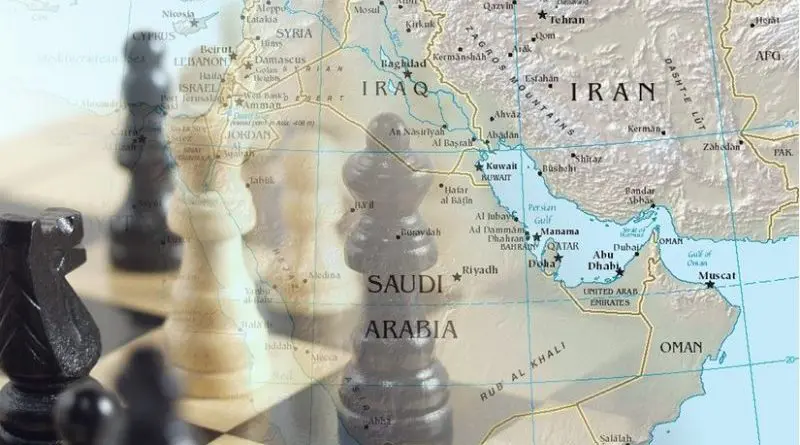Saudi Arabia From Checkbook Diplomacy To Chessboard Diplomacy – OpEd
The Kingdom of Saudi Arabia (KSA) is a treasure box. The West has invested heavily on the Oil and Gas sector of KSA to generate billions and billions of dollars. In 2018, Saudi Aramco posted a net income of $111.1 billion; becoming the world’s most profitable company (Reuters, 2019). Even the tech startups of the US have been benefited by the KSA investment — a $45 billion check to Softbank Vision Fund by KSA on the biggest brand like Slack, WeWork, and GM Cruise making up to 26 investments. Saudi Public Investment Fund has planned to grow $2 trillion by 2030 from $100 billion today as a part of the larger Saudi Vision 2030 (Quartz, 2019), the effort and vision made by the Saudi Crown Prince and de-facto leader Mohammad Bin Salman (MBS).
When MBS became Crown Prince, KSA was struggling with decreasing oil prices. In 2014, the average oil price per barrel was $98.69, $43.74 in 2016, $71 in 2018, $66.59 in 2019 and targeted to be around $67 in 2020. This unstable oil price had impacted a lot in the Saudi Oil and Gas production sector; KSA dependency on oil is near about 70% for all export earnings and 50% of gross domestic product.
Since 2015, KSA foreign policy and economic policy has changed drastically after the emergence of de-facto leader MBS. KSA endorsed the Saudi 2030 Vision and aims to diversify Saudi economy beyond oil in 2016. KSA envisioned this plan through creation of sovereign Investment Fund known as Public Investment Fund (PIF) from Saudi Aramco. The KSA key wealth fund has now about $300 billion in assets and its growing size is set to improve “improve the country’s international investment” (Arab News, 2019).
In the past, KSA policy was based on the secret agreements, checkbook diplomacy, quiet mediation and the US guaranty of its foreign policy. KSA had funneled billions of aid to friends; many of whom used that to bankroll their agenda—delivering little return for KSA (MEI, 2019). To overcome these challenges, when King Salman came to power he made MBS a de-facto leader, and initiated three strategies: Strengthening its military, Re-evaluating its alliances and aggressively countering Iranian expansion.
All these three strategies now broadly explain how KSA is performing its foreign policy. KSA now performs very aggressive policy against Iran and its allies; KSA is now one of the biggest buyers of the US weapons and re-strengthening its alliance with the countries, such as Pakistan. Despite disapproval from the Democrats and Republican lawmakers, the Trump administration issued an emergency declaration to push $8.1 billion arms deal to KSA, UAE and Jordan (PBS, 2019). Whereas, KSA announced $8 billion of the funds pledge to Pakistan to construct an oil refinery at the Gwadar port in a view to increase its oil production (TIME, 2019).
Way forward
The KSA-Iran conflict and the US emergence as an oil exporter from importer have slowly changed the Middle East politics. International Energy Agency (IEA) says “booming shale production has allowed the US to close in on, and briefly overtake, Saudi Arabia as the world’s top oil exporter (CNBC, 2019).
The severity further exposed when recent attack was carried out in the KSA central oil processing facilities by Iranian backed Houthi rebels (alleged by Iran), showed the limitation of the KSA’s air defense system. KSA displaying debris of drone and missile technology used by Houthi during attack on oil facilities says, it insisted showed the attack was “unquestionably sponsored by Iran” (Guardian, 2019). This has caused greater power engagement in the region to cash their ‘watermelons’. Recently, Putin is playing the trade off with KSA in the selling of Russia’s S-400 surface to air defense system (Bloomberg, 2019). This smart negotiation attempt of Putin with KSA make Russia an indispensable stakeholder in the regional stability followed by the US in already volatile region.
In addition to this issue, the Iran Nuclear deal was opposed by the US when Donald Trump came to power and much more aggressive foreign policy has been carried out against Iran with the support of KSA. Qatar was economically sanctioned by OPEC for alleged partnership with Iran. This makes Qatar to carry out independent foreign policy in the region. In addition to this, UAE is also independently playing in Middle East. So with, KSA, Iran, Qatar and UAE, the Middle East has lost a single central authority and devalued to smaller entity — as such the US engagement is much more time consuming than ever before.
Underlining the situation, the US Secretary Mike Pompeo has called for a Gulf unity—probably by forming the ‘Arab NATO’ by traveling to nine Arabian nations in January 2019. An Arab NATO would be like a military alliance led by most probably KSA to counter Iran and maintain greater Middle East regional stability.
In a Cairo speech entitled “A Force for Good: America’s Reinvigorated Role in the Middle East,” Pompeo accused the former president of “misguided” thinking that diminished America’s role in the region while harming its longtime friends and emboldening Iran (Military Times, 2019).
Underlining all above constraint, there is no doubt, that KSA is super rich and most influential player in the Middle East. KSA has invested on the very significant sectors (Tech Startups) of Silicon Valley—the nerve system of the US economy. Based on the learning drawn by the decreasing oil price, US emergence as a oil exporter from importer, Qatari & UAE independent foreign policy practice, Russia-China-Iran nexus, KSA still needs much more to implement diplomatic engagement from checkbook diplomacy (only understanding from profit-loss perspectives) to chessboard diplomacy (much more strategic, calculative and visionary) to overcome all the above challenges.
*The author is an aspiring doctoral candidate of International Relations at Tribhuvan University, Nepal

